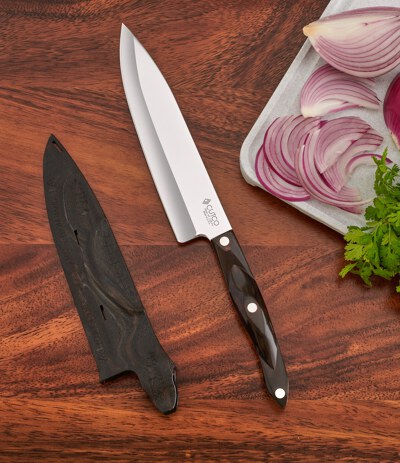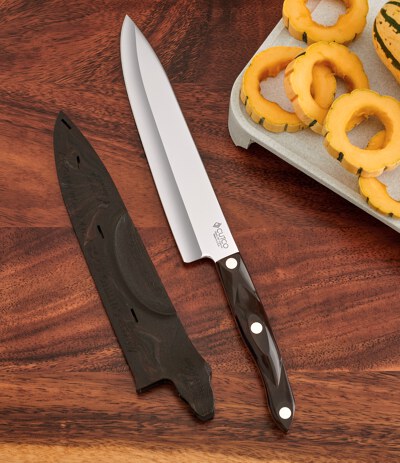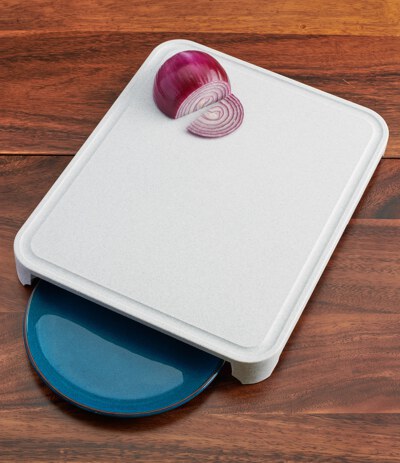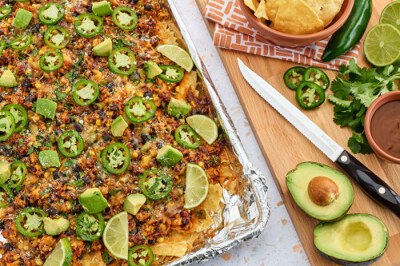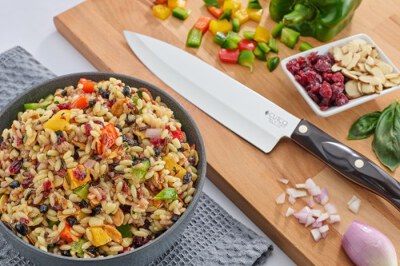5 Bad Kitchen Knife Habits to Break Today
3283 days ago
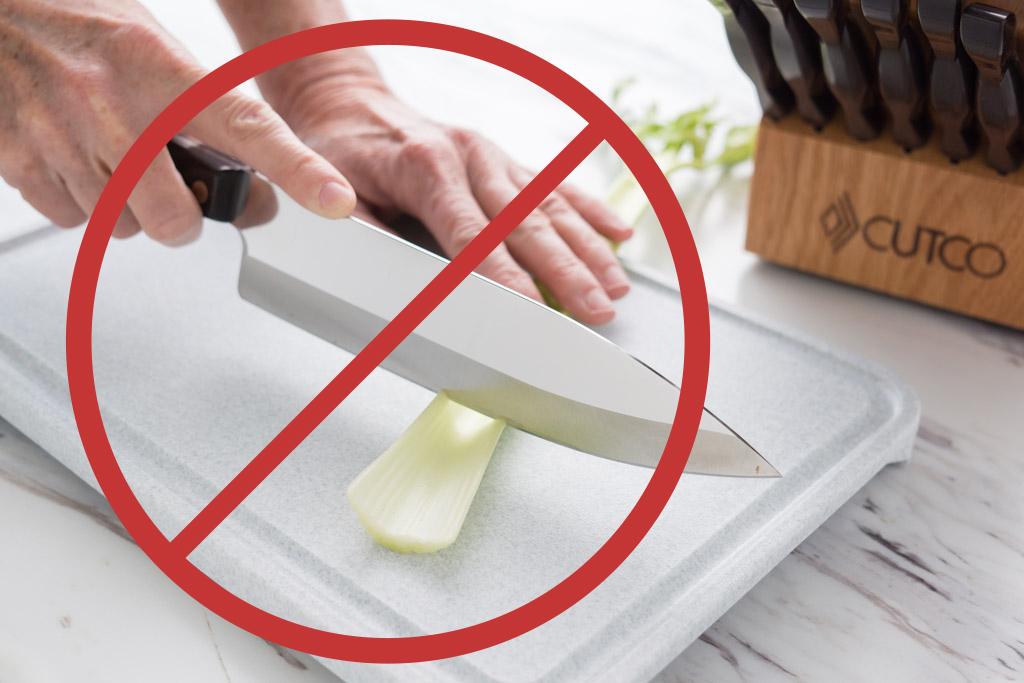
I used to have horrible kitchen knife habits. I would cut on the wrong surface, work with dull knives and never worry about what my guide hand was doing, among other things.
It wasn't until I started working for Cutco that I realized that I was doing a lot of things wrong. As with all bad habits, it took some time to break them, but once I did life in the kitchen got much easier. Using knives the right way not only makes cooking more enjoyable, it keeps you safe and your knives in good working order.
What are some of the most common bad habits that you should break today?
1. Placing your index finger on the top of a chef knife blade
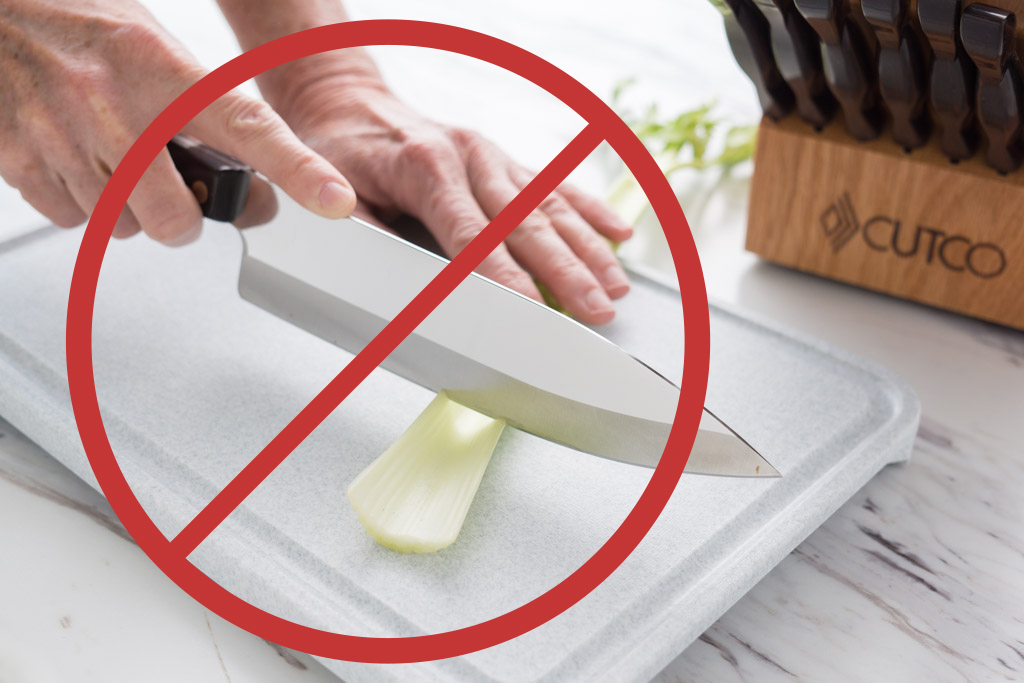
This is the most common mistake I see people make. It doesn't allow you to control the knife and really isn't a safe. Instead, you should grip the handle and place the thumb firmly against the blade's spine or against the side of the blade. Cutco knife handles are designed to let your hand naturally grip the handle for better control while cutting. You can also use a pinch grip, popular with professional chefs, where you pinch your thumb and index finger against the blade, just below the handle.
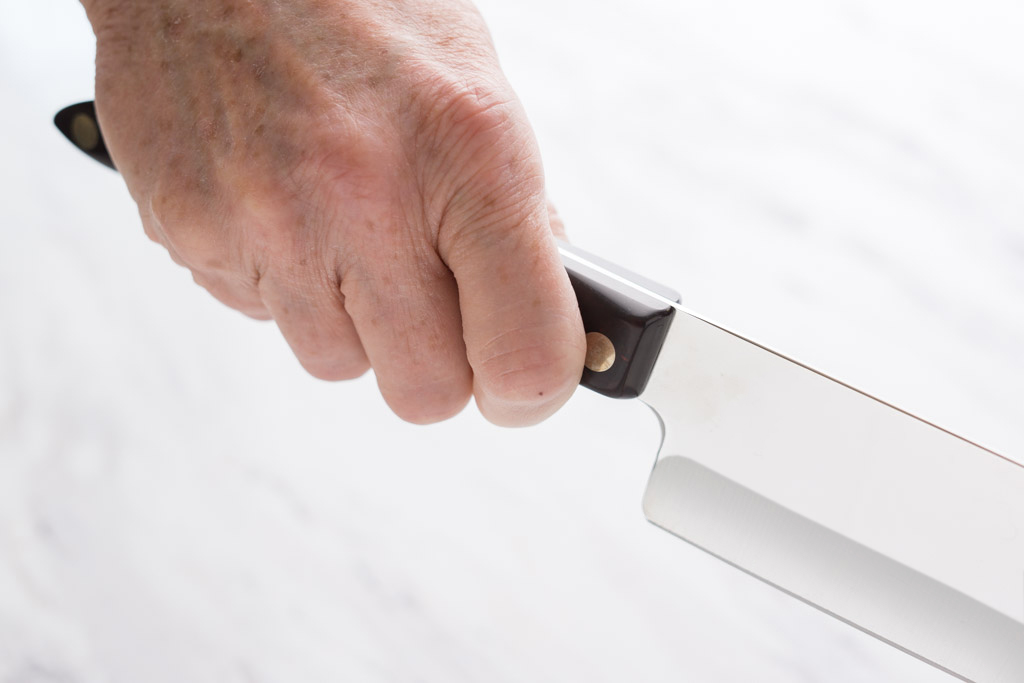
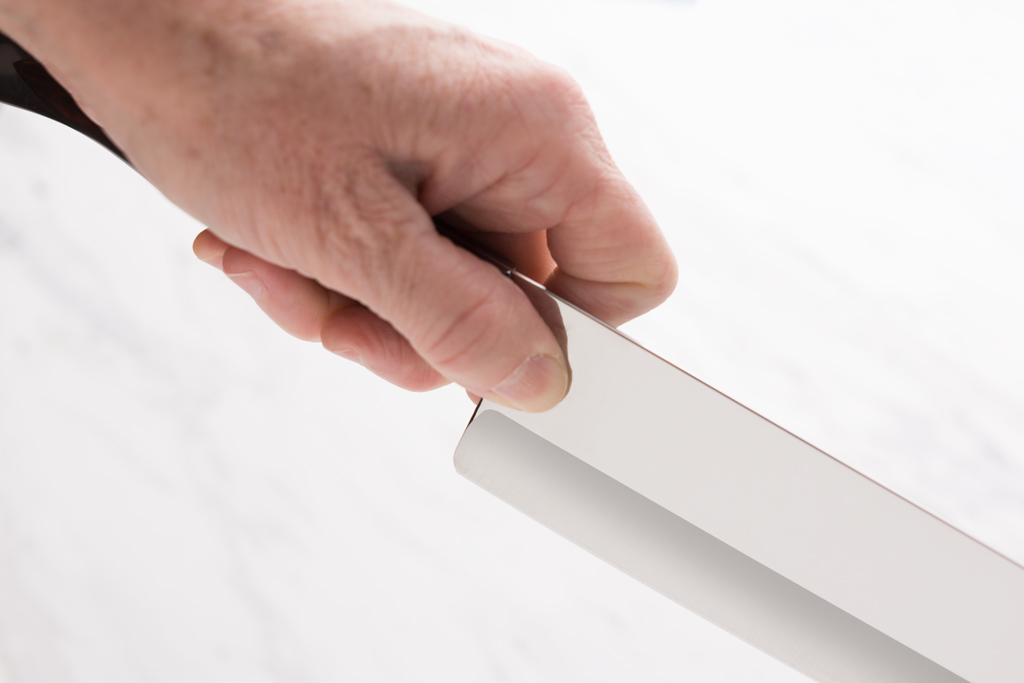
2. Scraping the sharp edge of the knife across board to move ingredients.
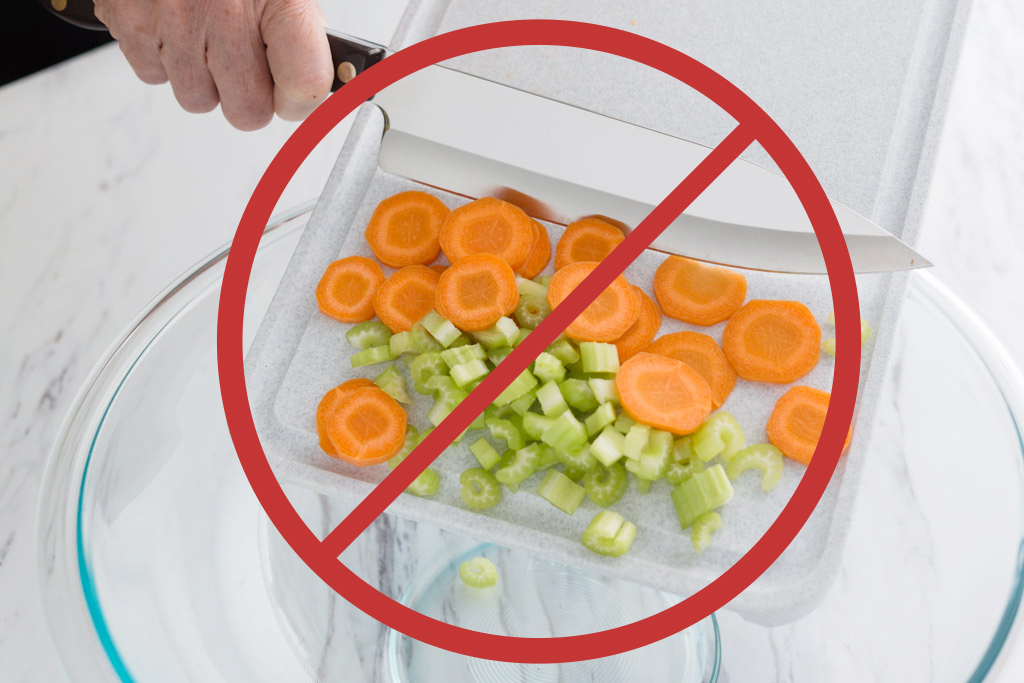
This one makes me cringe. Hopefully you're using a knife-friendly cutting board, but even then, dragging the knife's edge across the board is a quick way to start the dulling process. To move ingredients on the board use the back side of the knife.
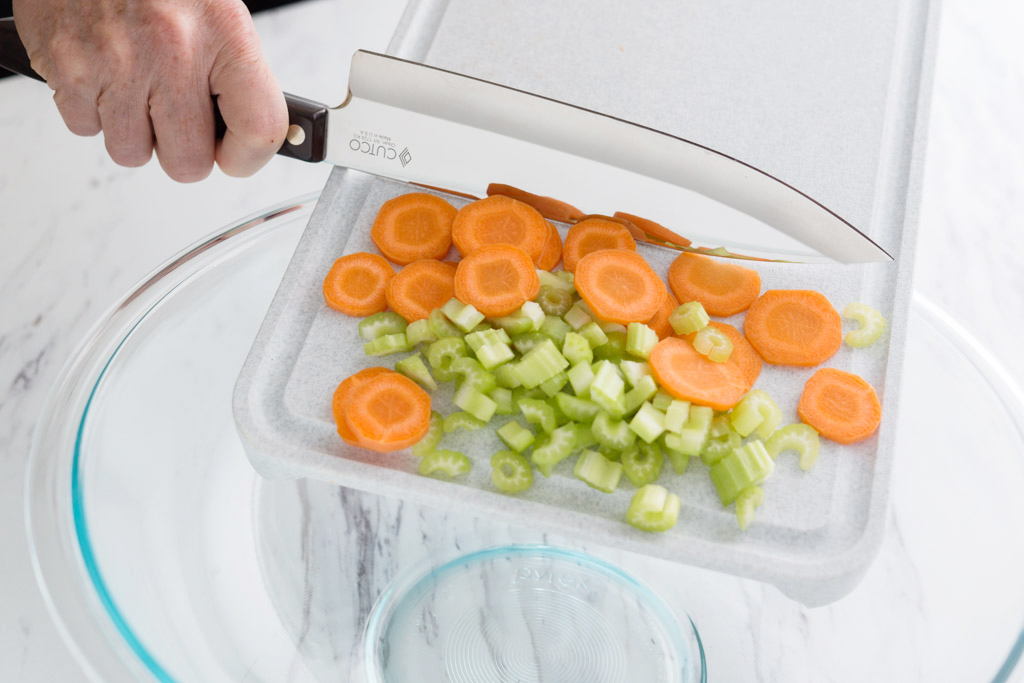
3. Cutting on a glass cutting board or ceramic plate.
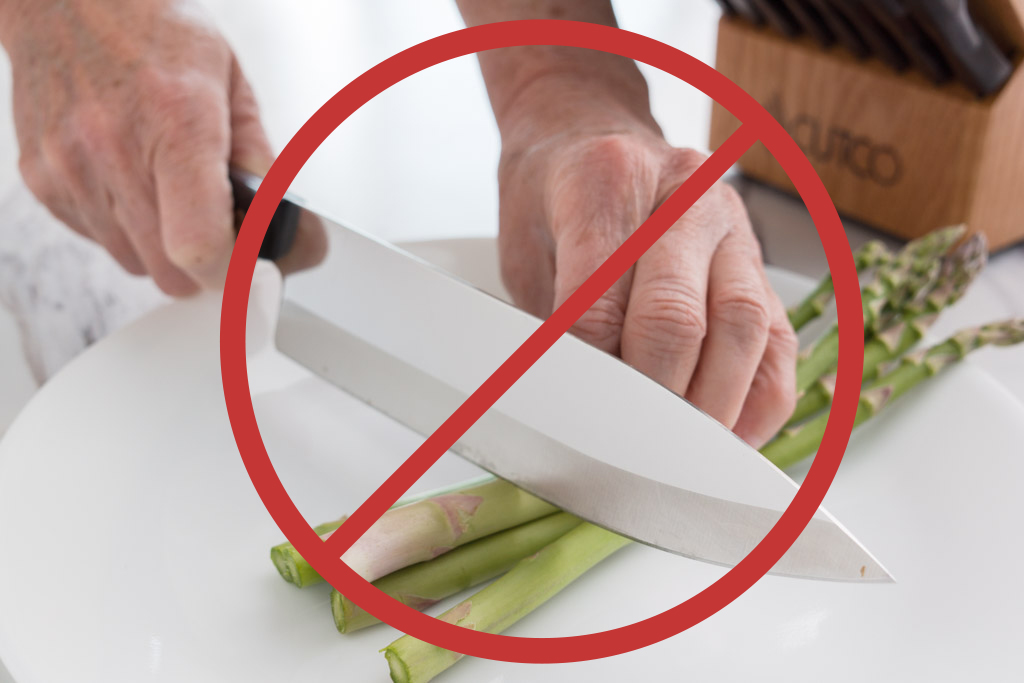
Speaking of knife-friendly cutting boards, use them. Do not cut on glass, ceramic or granite counter tops. Your knife will dull very quickly. Instead use cutting boards made of polypropelene or wood.
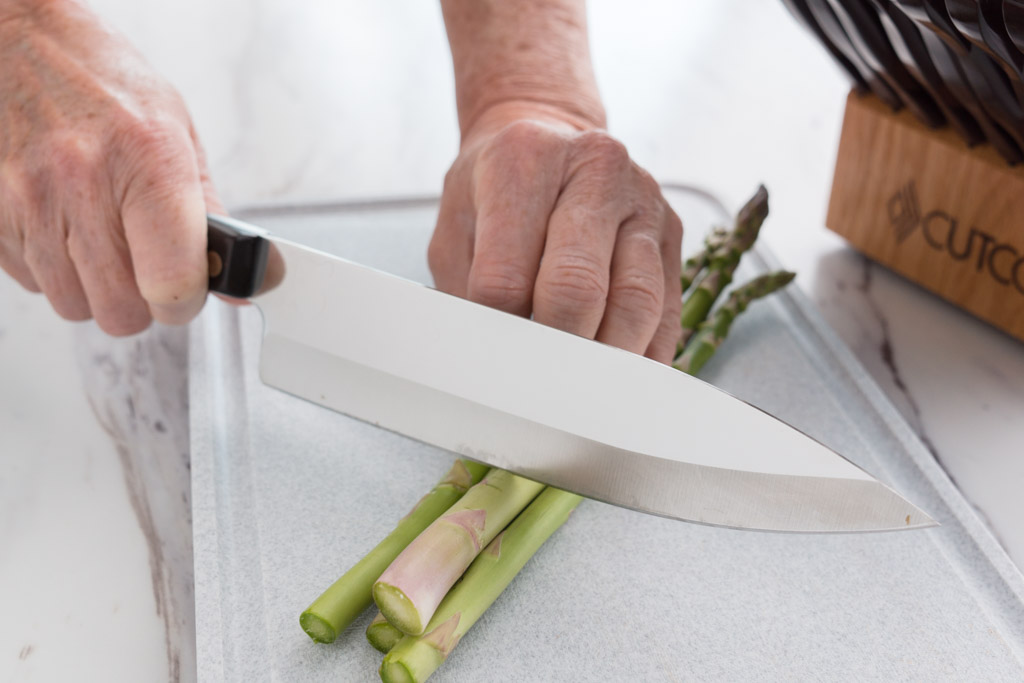
4. Using your knife as a screw driver.
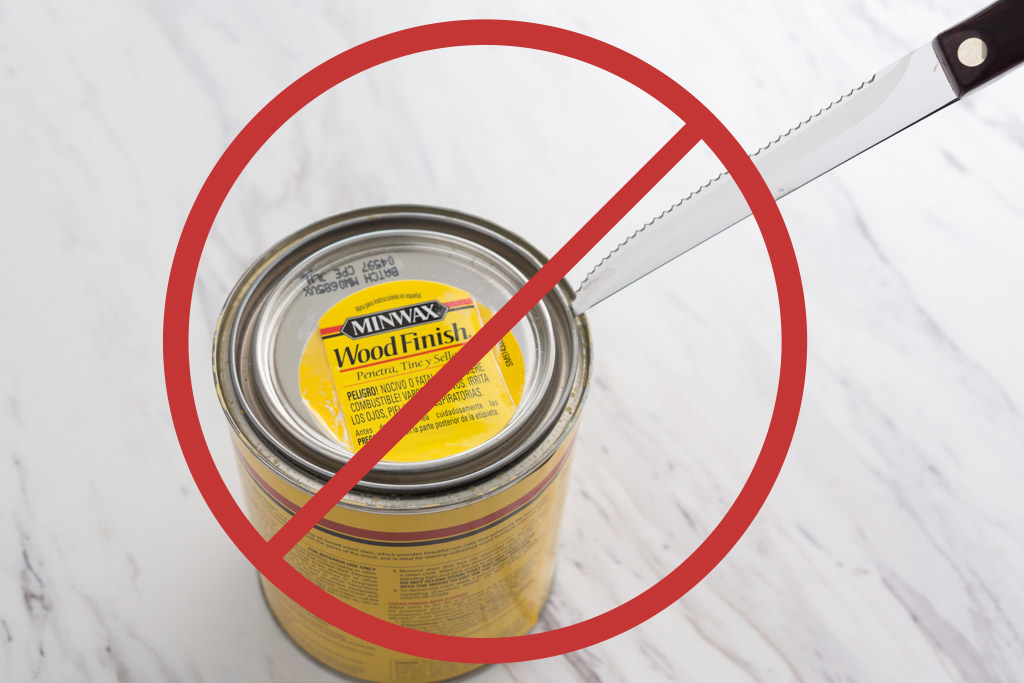
Just don't do it. I can't reiterate this enough. Not only will it damage the knife, it's dangerous. Not only could you get hurt if the knife slips, you could also very easily damage whatever it is you're trying to open.
5. Not properly positioning your guide hand
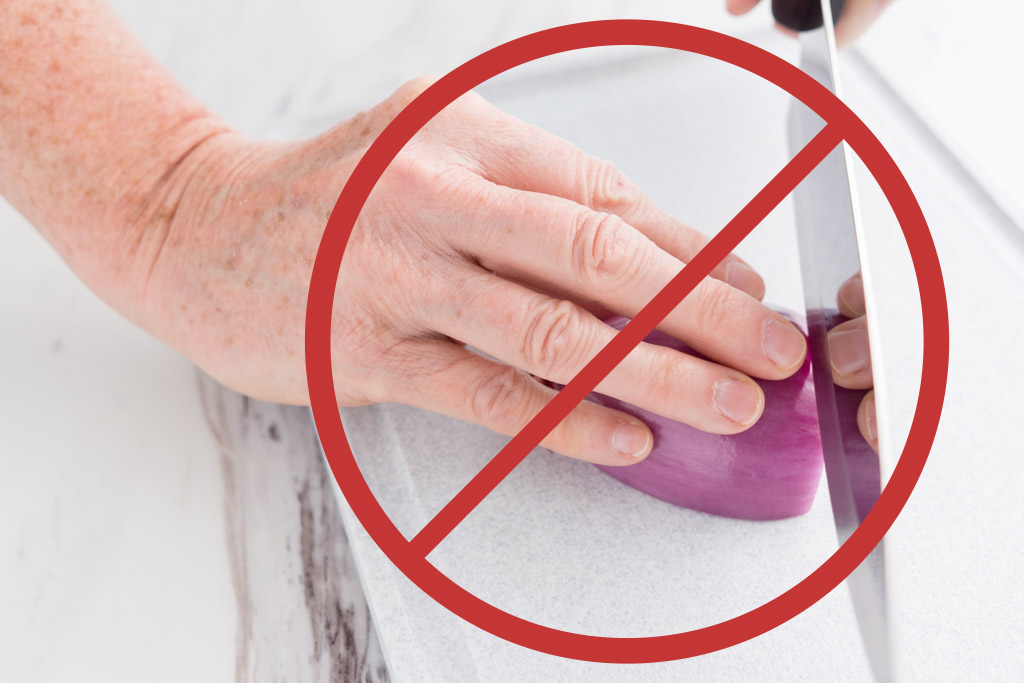
We give so much thought to the knife cutting that we often neglect the placement of the guide hand. Curl your fingers under making sure your thumb and pinky finger are also tucked under (those are the two that always sneak out when I'm cutting). This position, sometimes referred to as a claw, also allows you to use your fingers as a guide for your knife while cutting.
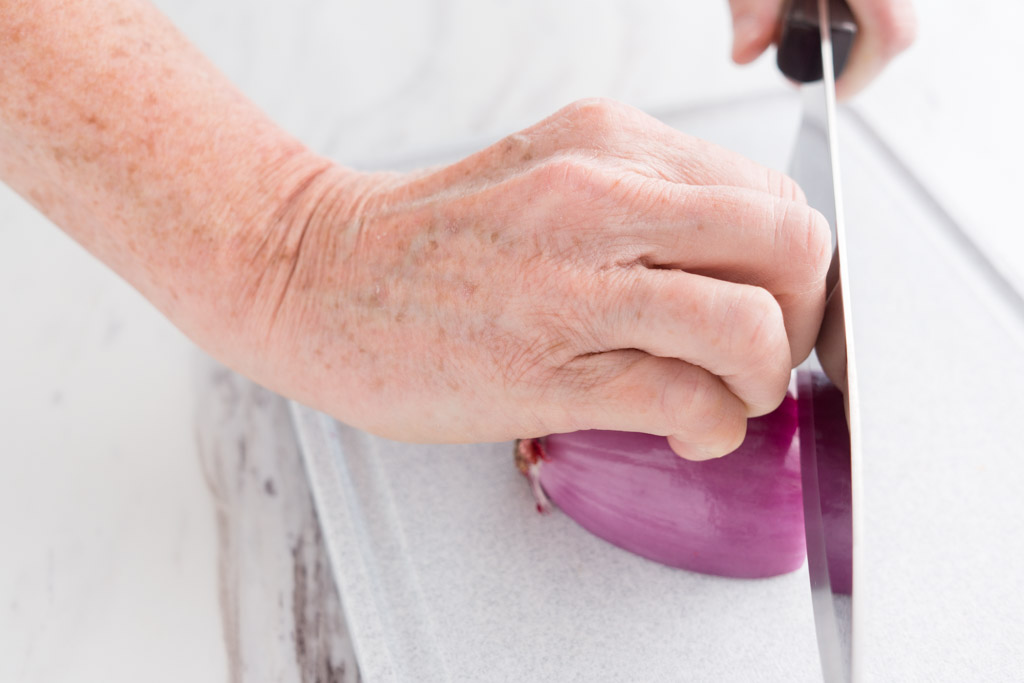
There you have it. Break those habits and your fingers and knives will thank you.
